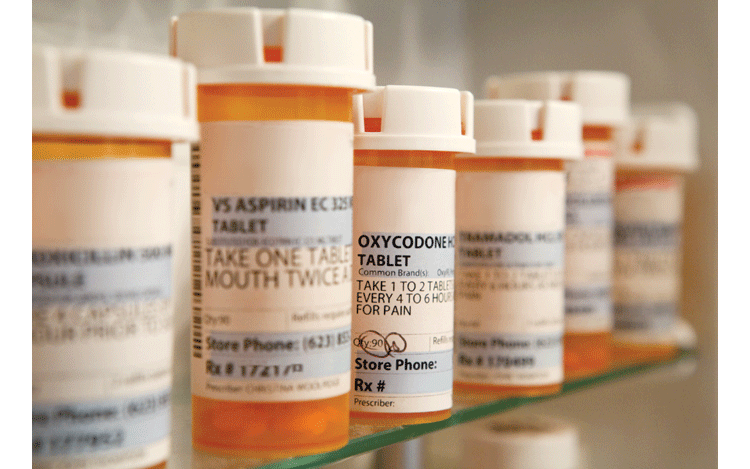IT’S A STARTLING FACT: Prescription drug abuse is a problem that affects people from all walks of life. Unfortunately, prescription drug abuse oftentimes occurs in the home, with pills and medications being pilfered or stolen from their legally prescribed owners. Sadly, the culprits of medication thefts could be children and other family members, friends, neighbors, or any other visitors to your house. You can help prevent prescription drug abuse in your home by taking our quiz and getting up to date on medication storage and disposal safety.
1. Where is the best place to store your medications?
A) The bathroom medicine cabinet
B) A kitchen cupboard
C) A locked drawer or cabinet
D) The freezer
2. True or False? It’s illegal to take prescription medication prescribed to someone other than yourself.
3. Which is the best resource to help you determine which of your medications are targeted for abuse and theft?
A) Your pharmacist
B) The Internet
C) Your doctor
D) The information packets included with your prescriptions
E) None of the Above
4. “More than ______ of people aged 12 and older who abused prescription drugs got them from friends or family for free.”
A) 10 percent
B) 50 percent
C) 30 percent
D) 25 percent
5. What are other reasons to always keep all your medications locked away in a cool, dry cupboard or drawer?
A) The medications can’t be accessed by young kids who might mistake them for candy or food.
B) Medications can degrade and become dangerous or useless when subjected to heat, moisture and changes in temperature.
C) Your prescriptions can’t be ingested by a curious pet.
D) You will always know where to find your medications.
E) All of the Above
6. True or False? You should always keep prescription medications that are expired or that you no longer take.
7. Which of the following is the best way to get rid of expired or unwanted medications?
A) Throw medications, bottles and all, in the trash or recycling bin.
B) Donate them.
C) Bring them to your doctor.
D) Take them to a medication take-back program.
E) All of the Above
8. Where can you find a medication take-back program?
A) Internet search tools like awarerx.org/disposal-sites
B) A police station or municipal building
C) Your local pharmacist
D) A mail-back program
E) All of the Above
9. What are options for disposing of expired or unwanted medications if there are no take-back programs available? (Choose all that apply)
A) Mix the medication with an unpalatable substance, like used coffee grounds or kitty litter, place in a sealed container or plastic bag and throw it in your household trash bag.
B) Flush the medication, as long as the directions on the bottle say it is okay.
C) Bury the medications in your yard.
D) Keep them in your home until a take-back program is started in your area.
ANSWERS
1. C) A locked drawer or cabinet. Choose a cool, dry place that can be locked.
2. True. You should only take medications prescribed to you by a licensed professional.
3. A) Your pharmacist. While all the other options may be able to give you information, your pharmacist will know all of the medications you are taking and can advise you on safe storage and disposal.
4. B) 50%. According to awarerx.org, friends and family are the most common source for those abusing prescription medications.
5. E) All of the Above. There are many good reasons for keeping prescription medications locked up, safe, and out of the hands of loved ones and pets.
6. False. Prescription medications should be disposed of properly, such as through a medication take-back program.
7. D) Take them to a medication take-back program.
8. E) All of the Above.
8. A) and B). According to the FDA, these disposal methods also are allowed.
CREDIT
article by ERIKA ALDRICH
RESOURCES:
